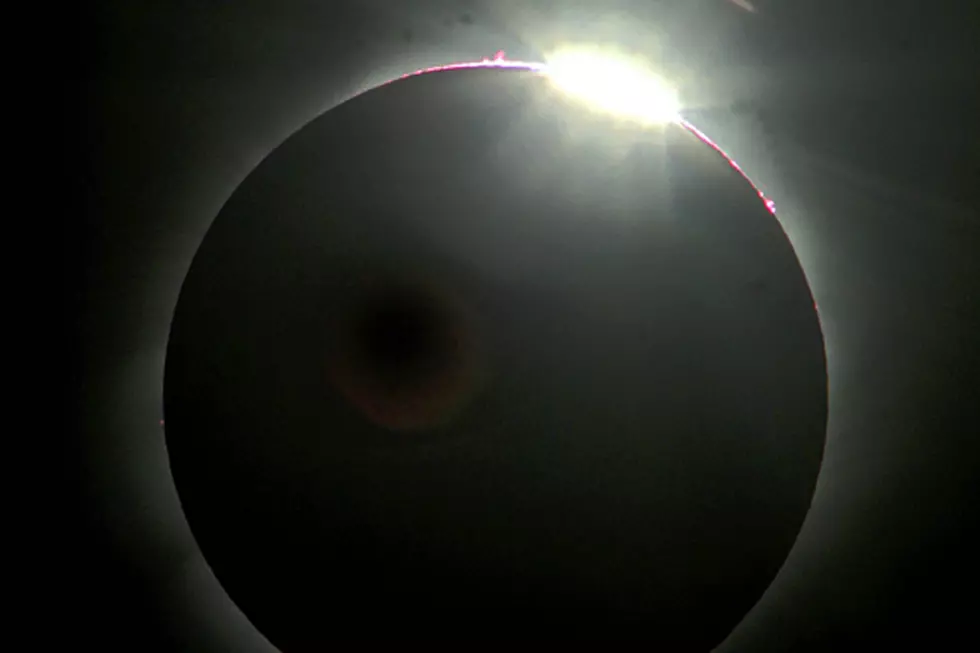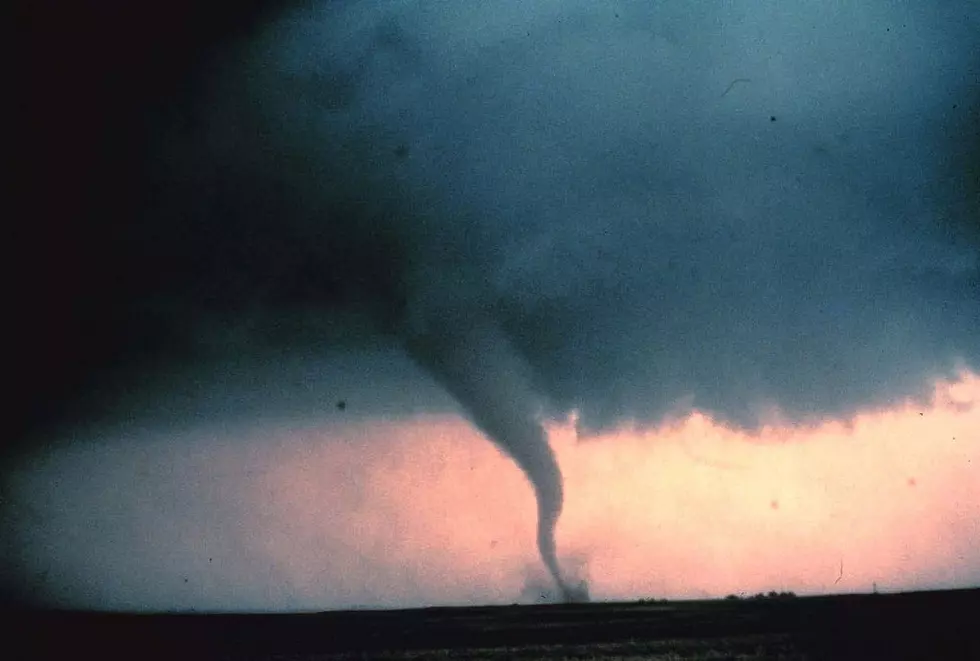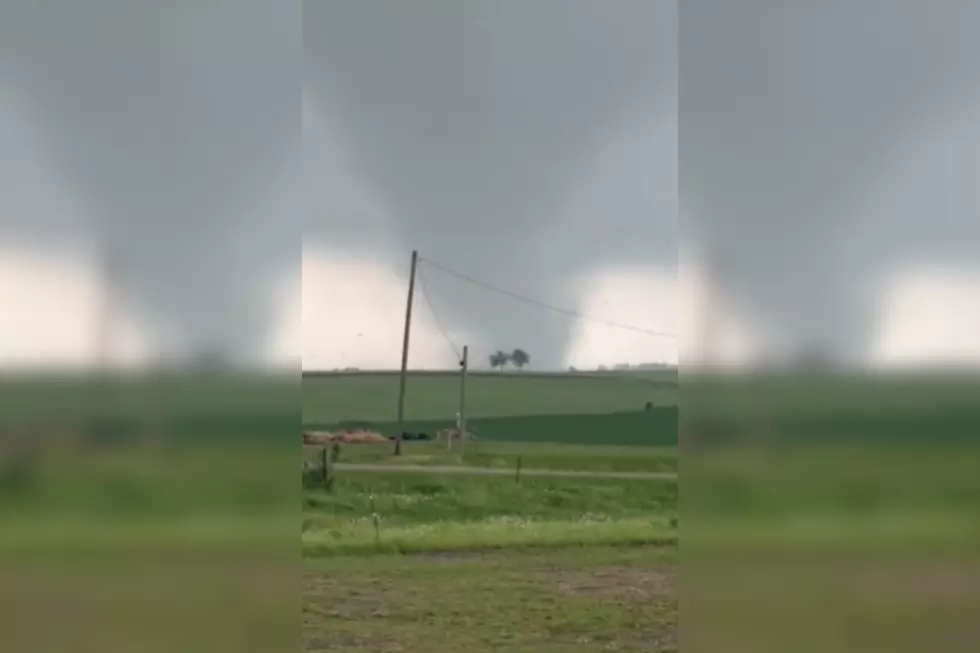
How ‘Eclipse’ Provided an Epic Finale for Pink Floyd’s ‘Dark Side of the Moon’
Pink Floyd were onto something, as sessions continued for 1973's The Dark Side of the Moon. They just didn't have an ending.
In fact, the band continued tinkering with things even after a first live run-through of the album was cut short by technical issues. Subsequent performances in January and February of 1972 were enthusiastically received by fans, but the issue of tying everything together remained.
Already, Dark Side of the Moon had found a focus on a variety of age-old worries, including money, aging, mental illness and death. The songs developed a unity, partially by way of the musical contributions of guitarist David Gilmour, bassist Roger Waters, keyboardist Rick Wright and drummer Nick Mason, who worked out arrangements in rehearsal jams and during those early 1972 tour dates. The material was also intermingled thematically by Waters' concepts on empathy.
As the sole lyricist for this material, Waters wanted to examine how the struggles in Pink Floyd’s newest tunes were universal among all human beings. “There are a number of things that impinge upon an individual that color his view of existence,” Waters told Classic Albums. “There are pressures that are capable of pushing you in one direction or another, and these are some of them."
Still, while there was already a commonality of theme, something was clearly missing. “I suggested it all needed an ending,” Waters told Uncut. “I wrote ‘Eclipse’ and brought it into a gig in Colston Hall in Bristol, on a piece of lined paper with the lyrics written out.”
Except the closing song wasn’t called “Eclipse” at that point. Instead, the album itself had taken on that title, because the British blues-rockers Medicine Head were coincidentally releasing an LP also called Dark Side of the Moon. When the Medicine Head project flopped, Pink Floyd reverted back to their original album title. “Eclipse” then became the name of a short song first marked simply as “End.”
Watch Pink Floyd In the Studio Working on 'Eclipse'
Although it had a rather obvious title and a brief running time of about 90 seconds, “End” made the most of its position as a thematic finale. After inhabiting the mind on “Brain Damage” (which was then called “The Lunatic Song”), Roger Waters pans to a widescreen view of existence. The song was as obvious in its design as it was all-encompassing. Twenty-three of the composition’s 24 lines feature either the word “all,” “everyone” or “everything.”
In addition, Waters retraces the notions of the entire album, beginning "Eclipse" with “And all that you touch / And all that you see” – nearly a replication of a line in "Breathe." Waters continues to reflect on the subjects of previous songs by touching on the material obsessions of “Money” with the lyric “And all that you buy, beg, borrow or steal” – while also giving a nod to Chaucer's Canterbury Tales. The conflict of “Us and Them” reappears as “And all that you fight / And everyone you slight.”
The chronological idea of “Time” is rendered null by looking into the void: “And all that is now / And all that is gone / And all that’s to come.” The lines that follow are “And everything under the sun is in tune / But the sun is eclipsed by the moon.” This isn’t merely Waters' reference to the album's title – or even the “I’ll see you on the dark side of the moon” lyric from “Brain Damage” – but instead a restatement of his elemental vision of humanity.
“I don’t see it as a riddle," Waters said in Pink Floyd: Bricks in the Wall. "The album uses the sun and the moon as symbols; the light and the dark; the good and the bad; the life force as opposed to the death force. I think it’s a very simple statement saying that all the good things life can offer are there for us to grasp, but that the influence of some dark force in our natures prevents us from seizing them. The song addresses the listener and says that if you, the listener, are affected by that force – and if that force is a worry to you – well, I feel exactly the same too.”
Despite completing the song after only a handful of 1972 road tests for the project that would become Dark Side of the Moon, Pink Floyd didn't actually record "Eclipse" (or "End," as it was still known) until nearly a year later. They also completed "Brain Damage" during the final rounds of studio work at London’s Abbey Road Studios, taping it at the same time to ensure a smooth transition. With only Wright’s Hammond organ swelling to the foreground between “Brain Damage” becoming “Eclipse,” some fans consider it to be a single two-part song. Radio stations most often play them together, as well. But Waters’ litany can, and does, stand on its own.
Listen to Pink Floyd Perform 'Eclipse' in Concert
Roger Waters wrote the entirety of music and lyrics, and also chose to sing lead on the track. Pink Floyd worked together to make “Eclipse” as much of a musical climax as it was a thematic one. Still, given the song’s repetitive structure, it wasn’t the easiest task.
“I remember working hard on making it build and adding harmonies that join in as you go through the song,” Gilmour told Rolling Stone. “Because there’s nothing to it: There’s no chorus, there’s no middle eight; there’s just a straight list. So, every four lines, we’ll do something different.”
The guitarist also chimed in on harmonies, as did Lesley Duncan, Doris Troy, Barry St. John and Liza Strike. Their soulful voices added another tie-in to the rest of the album, as these backing singers were also featured on “Time,” “Brain Damage” and as a counterpart to the improvised wails of Clare Torry on “The Great Gig in the Sky.” Together, they underscored the universality of "Eclipse." If it’s an accident that the line emphasized by an echoed vocal is “everyone you meet,” then it was a happy one.
After “Eclipse” is brought to a crashing conclusion, the track runs for another 41 seconds. Listeners hear the sound of a fading pulse – actually a processed kick drum – that also begins the album, making The Dark Side of the Moon into a circular motif of life and death.
Not long after Waters delivers his final lyric, Abbey Road Studios doorman Gerry O’Driscoll offers a hushed final rumination: “There’s no dark side in the moon, really. Matter of fact, it’s all dark.” O’Driscoll was one of a number of contributors whom Waters asked to provide vocal snippets throughout the album. An orchestral version of the Beatles' “Ticket to Ride” could originally be heard faintly under O’Driscoll, until soundmen later removed it on remastered editions.
O’Driscoll’s follow-up comment – “the only thing that makes it look light is the sun” – also landed on the cutting room floor. Still, his everyman wisdom appears to dovetail with Waters’ intentions for “Eclipse” and The Dark Side of the Moon as a whole, despite those who perceived a more negative meaning in the album’s final lyric. “That’s not to say the potential for the sun to shine doesn’t exist,” Waters told Classic Albums. “Walk down the path towards the light, rather than walk into the darkness.”
Hear Pink Floyd Perform 'Eclipse'
Pink Floyd Album Art: The Stories Behind 19 Trippy LP Covers
Gallery Credit: Nick DeRiso




